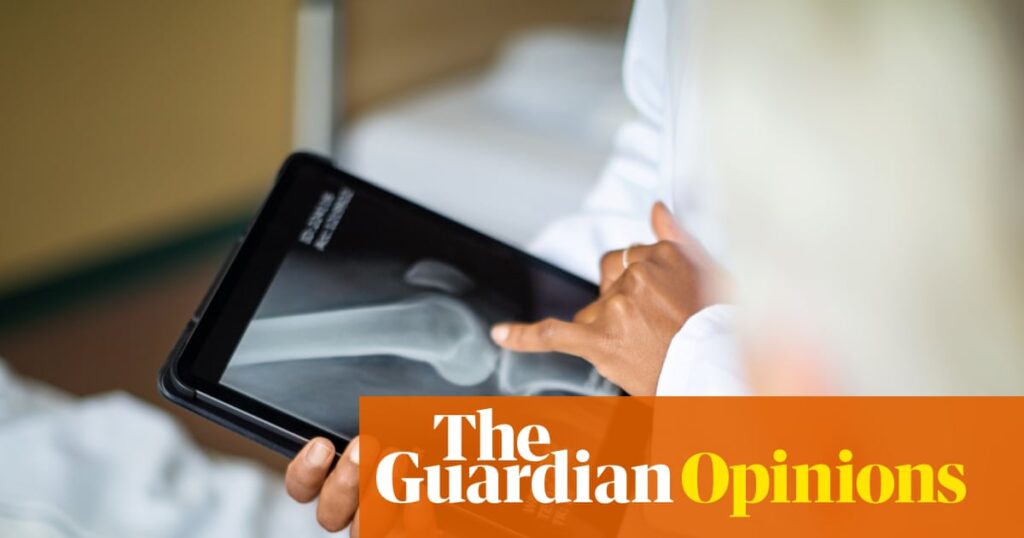I recently came across a letter to an ethicist that made me stop. A doctor’s mother sustained a head injury from falling on concrete. The son bypassed two hospitals to take her to his institution where she received prompt treatment that saw her having a scan and staples in an hour. For any other patient, the writer argued, the ordeal would have taken five hours. After consulting religious leaders (with opposing views), the writer sought the ethicist’s opinion on the doctor’s conduct.
Reading this, I thought mea culpa.
When my son was three, he developed urinary retention. After watching his tiny abdomen swell, I didn’t know what was wrong, but I knew where to go – overlooking not one but two children’s hospitals in favour of my own institution. Here, I was met by the emergency physician who had once taught me to insert IVs in children. After performing a quick ultrasound, he prescribed the sound of running water and patience. But with midnight approaching, I worried that a longer wait in emergency meant cancelling my own patients the next day. Shortly, the consultant made time for an “in and out catheter” and we got home. The next day, my son became incontinent. Worried about a spinal cord issue, I called my paediatrician friend who calmly reassured me that the problem would fix itself – as it did.
Some years later, when my dad collapsed at dinner, the ambulance whisked him to my hospital. He underwent the usual triage but that night, the head of cardiology, also a former boss, dropped by – not to take over but reassure.
Recently my mother called me in acute pain. Before dashing to hospital, I called a surgeon who confidently diagnosed her problem and advised staying home. He reassured her in Hindi and even offered to drop in, a generous and ultimately unnecessary offer.
For a worried parent to have immediate access to paediatricians. For a worried daughter to have specialists as friends. You would have to be possessed of a special kind of imperviousness to not admit the privilege of this position, especially in an era of fragmented healthcare and long waitlists.
When one’s child or parent is ill, clinical neutrality is impossible – indeed, I would consider it a dereliction of my parental or filial duty.
So the real question I wrestled with is this: when I harness my connections, am I harming someone else?
Social capital allows people everywhere to “jump the queue”. The banker negotiates a better mortgage rate. The CEO’s child nabs a place at a private school. The celebrity secures concert tickets the rest of us can’t. Medicine, of course, carries a distinct obligation – the Hippocratic oath. But even when (justly) judged by this high standard, most doctors exceed it. With ingrained training to put clinical need before social status, they would never knowingly compromise another patient’s care to help a colleague.
The emergency physician did not leave the resuscitation bay to treat my child. The paediatrician’s reassurance did not move another child’s appointment. The cardiologist did not neglect someone’s heart attack and the surgeon did not abandon the patient on the operating table to answer my call.
Doctors fulfil their duty to patients and then extend themselves to a colleague because this is how a social contract works. Some days, the healthcare “community” barely deserves that name, with every profession at odds with another. But when one of us gets sick – be it a doctor, porter or security guard – a remarkable solidarity emerges. When we help our own, we get them back on their feet to help our patients. This is cause for hope and succour.
However, our solidarity is not confined. I receive terrified questions about cancer from all manner of people. In guiding them to the best of my capacity, I often think about the Bible verse: “From everyone who has been given much, much will be demanded; and from the one who has been entrusted with much, much more will be asked.”
My approach is repeated across all the medical chat groups I belong to, where the uncommon request for personal favours is outnumbered by doctors seeking help for a patient: Who can expedite patient care? Who can speak another language? Is there compassionate access to a new drug? Where is the nearest clinical trial?
Day and night, doctors respond swiftly, intelligently and compassionately. This constant, behind-the-scenes hive of activity is the best illustration that most doctors recognise their privilege and, with it, the obligation to pay it forward.
One of my all-time favourite accounts about social capital has little to do with medicine and everything to do with generosity. Years ago, my young patient died, leaving behind young children. Her husband would send me occasional updates about the kids, which inevitably made me sad. One day, her son got in touch. Now at university, he had curated a list of people he wanted career advice from but didn’t know how to approach them. Impressed by his preparation, I agreed to help but warned against great expectations. Here is the thing: every single person on that list I wrote to made time. While I had not been able to save his mother, it felt like a small, collective justice to lift up her son.
The doctor who took his mother to emergency did what most children would do. The people who treated his mother did what any professional would do – assess, decide and act.
If you have a doctor in your family, you are privileged. But if you don’t, rest assured, we have your back.
-
Ranjana Srivastava is an Australian oncologist, award-winning author and Fulbright scholar. Her latest book is Every Word Matters: Writing to Engage the Public


